Vol. 86, Iss. 2, February 2013
Psychometric properties of the Farsi version of effort-reward imbalance questionnaire: a longitudinal study in employees of a synthetic fibre factory in Iran
Riassunto
Purpose To assess the reliability and validity of the Farsi version of the effort-reward imbalance questionnaire (F-ERIQ) and to examine the responsiveness of the tool to changes over time.
Methods A longitudinal study was carried out among 227 male employees of Iran Polyacryl Corporation. The F-ERIQ was developed through a forward–backward translation process that includes three scales of effort, reward and over-commitment (OC). Reliability and internal consistency of the F-ERIQ were assessed by split-half and Cronbach’s alpha coefficients. Confirmatory factor analysis, convergent and discriminant validity were conducted to evaluate construct validity. Depressive mood was used as an indicator for exploring criterion validity. The variations in mean scores over time for scales were regarded as measures of the responsiveness to changes.
Results Baseline split-half correlations for effort, reward and OC were 0.53, 0.85 and 0.65, respectively; Cronbach’s alpha coefficients improved from 0.61 to 0.70 for effort, 0.85 to 0.88 for reward and 0.67 to 0.72 for OC. All of item-total correlations were higher than 0.23 and item-scales correlations were higher than 0.4. Although Values of Goodness of Fit Index and Adjusted GFI were higher than 0.9 and Root Mean Square Error of Approximation, Root Mean Square Residual and Standardized RMR were lower than 0.05, confirmatory factor analysis only confirmed the construct of the effort and OC. People with higher job stress were at higher risk of depressive mood (at least 3 times more). Overall, the mean score of effort, OC and ERI increase, and the figures decrease for reward among people who experience changes.
Conclusions These findings provide evidence that the F-ERIQ is a reliable and valid instrument for assessing psychosocial stress at work among Farsi-speaking male employees. We propose that F-ERIQ be further evaluated across a variety of jobs and industries.
Commento
La ricerca, realizzata dal “Biostat and Epidemiology Department, University of Medical Science” ad Isfahan, Iran, rappresenta uno studio longitudinale, condotto con lo scopo di colmare la mancanza di conoscenza sulle caratteristiche dello stress lavoro-correlato in Iran, ed è la prima ricerca nel suo genere in questo paese.
Gli autori hanno riadattato il questionario ERI per la valutazione dello stress lavorativo e ne hanno testato l'affidabilità e la validità su una grande popolazione industriale.
La letteratura scientifica recente conferma che negli ultimi decenni la caratteristiche della vita lavorativa, nei paesi in via di sviluppo, sono cambiate profondamente e lo stress lavoro-correlato sta diventando una preoccupazione crescente. L'attuale mancanza di conoscenza circa l’epidemiologia e i risvolti psicologici dello stress lavorativo in questi paesi, inoltre, frena lo sviluppo di strategie efficaci mirate alla sua risoluzione.



